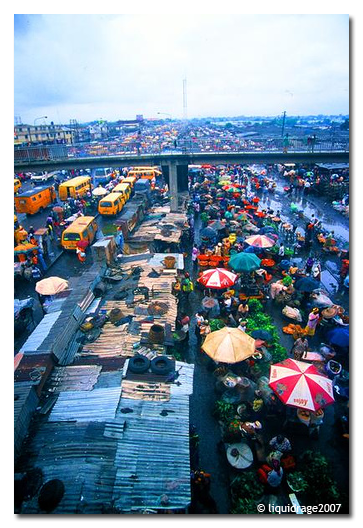Rechercher

Accueil du site > Equipes de Recherche > Migration rural-urbain, pauvreté et environnement durable : le cas de Lagos, Nigeria. > Problem, objectives, contexts and challenges
Rural-Urban Migration, Poverty and Sustainable Environment : The Case of Lagos, Nigeria.
Problem, objectives, contexts and challenges
 This project portends great value for practical issues relating to (1) town planning to accommodate migrants in their places of destination ; (2) the sustenance of local livelihoods in migrants’ places of origin ; (3) sustainable management of the environment in the migrants’ places of destination ; and (4) a review of Nigeria’s environmental protection policy aimed at monitoring and sustaining the quality and safety of the environment.
This project portends great value for practical issues relating to (1) town planning to accommodate migrants in their places of destination ; (2) the sustenance of local livelihoods in migrants’ places of origin ; (3) sustainable management of the environment in the migrants’ places of destination ; and (4) a review of Nigeria’s environmental protection policy aimed at monitoring and sustaining the quality and safety of the environment.
Lagos provides a classical case for studying migrants and the consequences of internal migration. It is the most cosmopolitan city in West Africa with an estimated population of over 10 million persons inhabiting the metropolis alone (not the whole of Lagos State). Lagos is a melting pot and mini-Nigeria. It has all the ethnic groups fully represented albeit with the Yoruba as most prominent ethnic group. The city has a long history from its pre-colonization origins through colonial administration to becoming the commercial nerve-centre of Nigeria.
The overall objective of this project was to investigate the nature, causes and impacts of rural urban migration on poverty and environmental changes in Lagos and the places of origin of the migrants. Specifically, the project (1) investigated the factors influencing rural-urban migration in Nigeria and developed a functional map of the rural-urban migration to Lagos ; (2) examined the nature of poverty in both places of origin and destination of migrants and Explored the environmental impacts of migration in both the places of origin and destination ; (3) established a correlation between rural-urban migration and the rate of environmental degradation in Lagos ; (4) established a correlation between rural-urban migration and the rate of environmental degradation in Lagos and ; (5) highlighted the implications of project findings for development planning and sustainable environment in the Nigeria
The leading research questions evaluated in this project on migration (versus urbanisation), poverty, and environment are defined as follow : (a) whether the decision of a person to migrate is dependent on the existing living situation in the place of origin ; (b) whether there is a significant difference in the migrants’ level of income before and after migration ; (c) whether there is a significant difference in major socio-economic characteristics of migrants and their non-migrant counterparts ; (d) whether there had been significant changes in the developmental phases of Lagos and the places of origin of the migrants in the last 20 years, and finally ; (d) whether there are significant differences in the environmental problems faced by migrants in Lagos and non-migrants in their places of origin.
Dans la même rubrique :